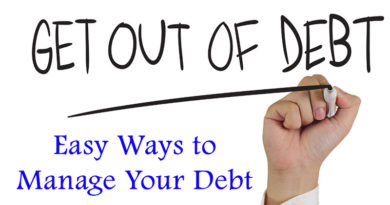Why is Credit Card Debt Increasing in the UK?
Credit card debt has risen significantly in the past five years and it’s showing no signs of getting better with Bank of England figures reporting a record high level of debt in October 2016.In the UK, households have £66.2bn worth of credit card debt outstanding, and this rose by £571 million in that month alone.

Healthy consumer spending, boosted by confidence in the economy, has propelled this number forward – which may come as a shock due to the uncertainty that comes hand in hand with Brexit negotiations and world leader changes.
Also, many people prefer to make larger purchases on credit cards because of the legal protection that comes with them. Credit cards can protect you if the company you are buying from doesn’t deliver or it goes bust, and many people seek this security. This is particularly true when buying holidays, just in case the airline is disbanded or the holiday company is shut down.
As well as this, a greater number of zero percent interest rates for longer periods of time (some creditors are offering 28 months) are also to account for an increase in credit card spending, and in turn, consumer debt. However, for those using these cards it’s important to bear in mind that this rate can rocket from 0 to around 19% once the period is up. Unsecured consumer credit increased by 10.5 per cent in 2016, which is the fastest rate since October 2005.
Zero percent interest is a great incentive, but it only works out for the best if those using credit cards are paying them off regularly to ensure that they aren’t caught out by charges that can see debt increase incredibly fast.
Another reason for credit card debt increases could be attributed to those moving what they owe around, consolidating and transferring their debt to zero per cent interest cards. However, the more money owed, the riskier this becomes once the zero percent ‘trial period’ draws to a close.
Following the Christmas period, those using credit cards to fund their festive spending could find themselves joining those people already dealing with an average consumer credit debt of £7,042. According to the Money Charity, consumer credit borrowing now works out to be £3,765 per adult in the UK. Between July and September 2016, £801 million was written off by UK banks and building societies – this suggests there is already a problem with credit card debt in the UK,and future use of credit could worsen the issue.
For those struggling to repay what they owe on credit cards, debt solutions arebeing sought out regularly.
If you are trying to repay credit card debt, talk to a free debt advisor, like PayPlan, about your situation and take the next step towards financial security. Credit cards are an everyday part of life; they offer a safety net in an emergency or allow us to build up our credit score, but it’s important spending does not spiral out of control.


